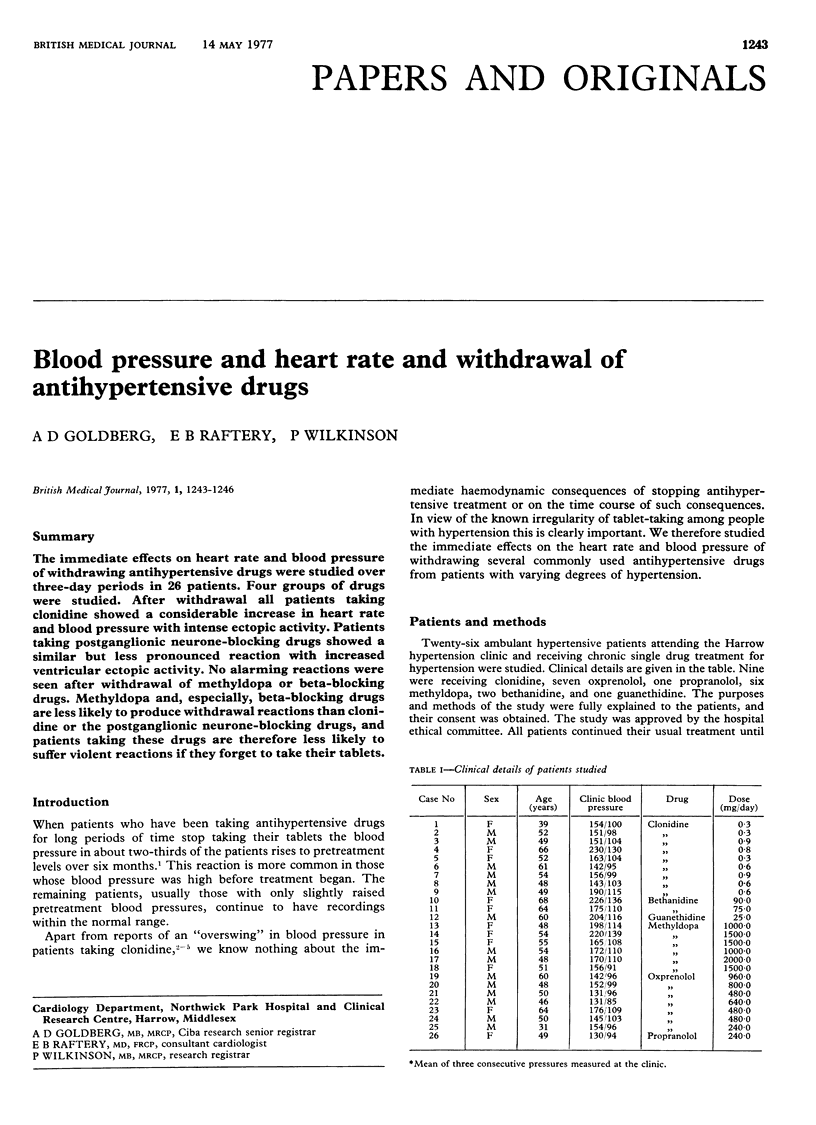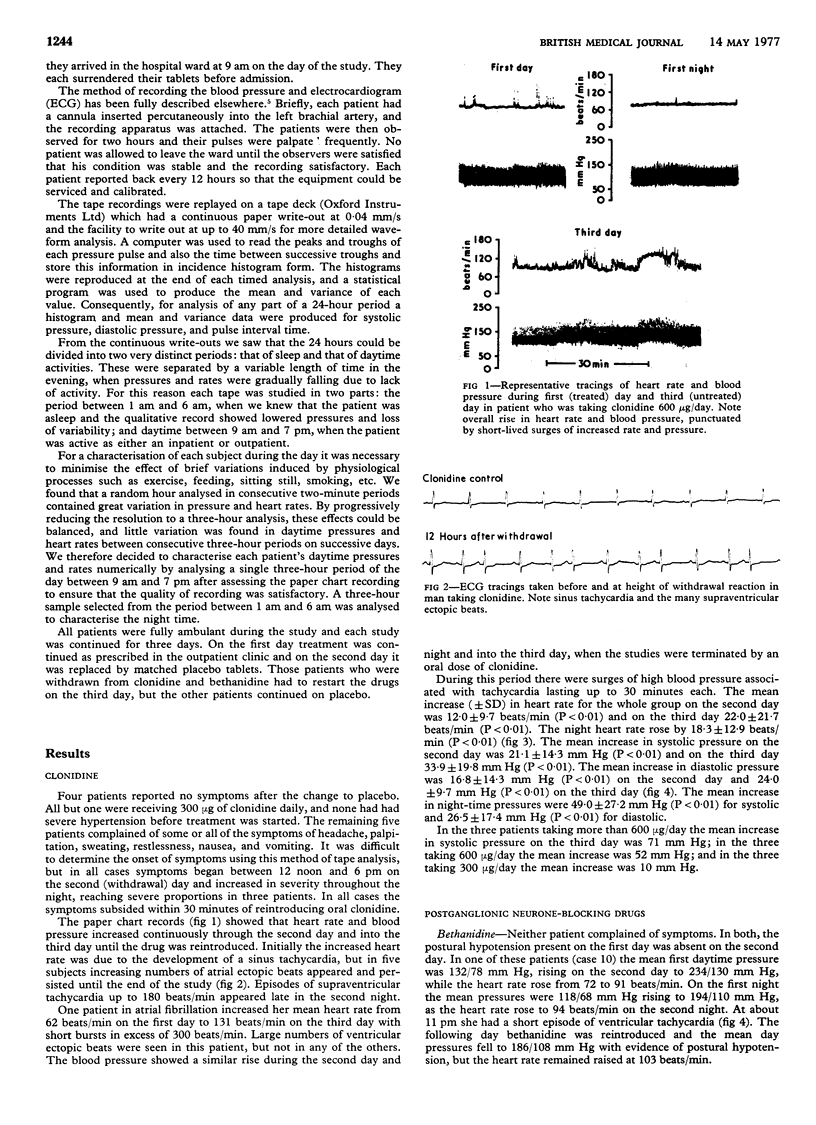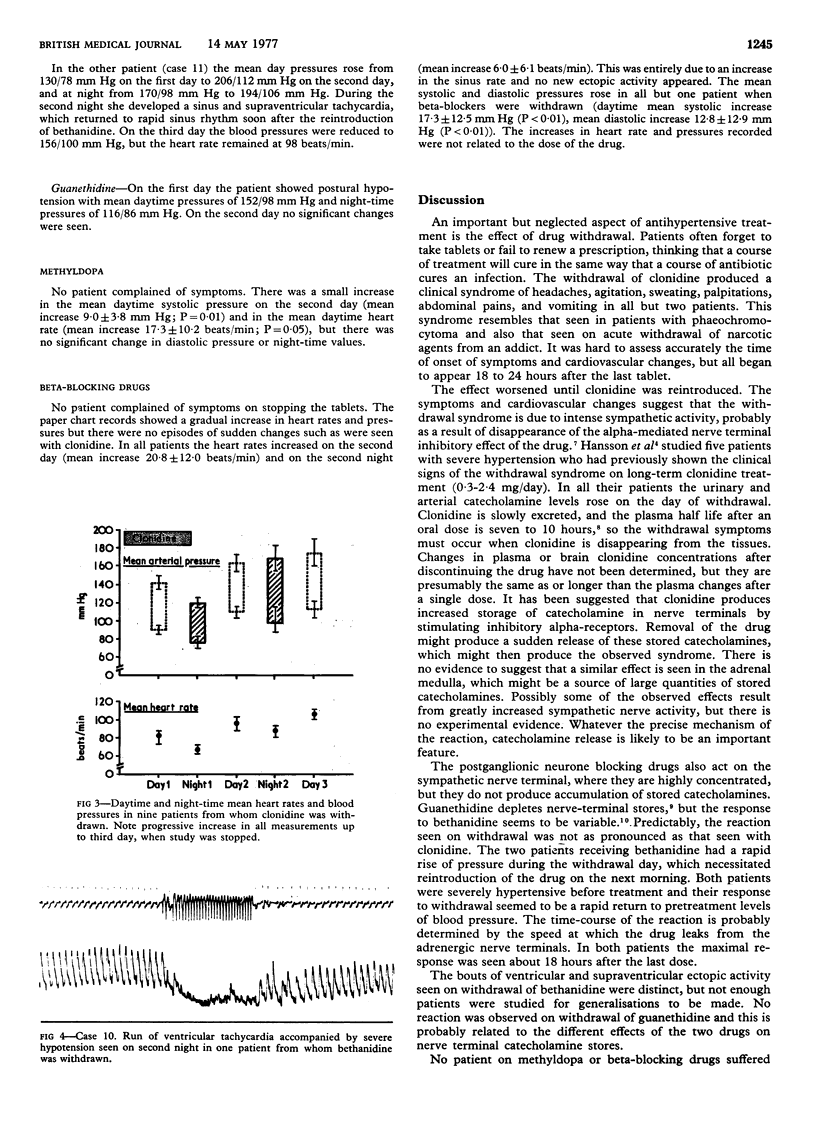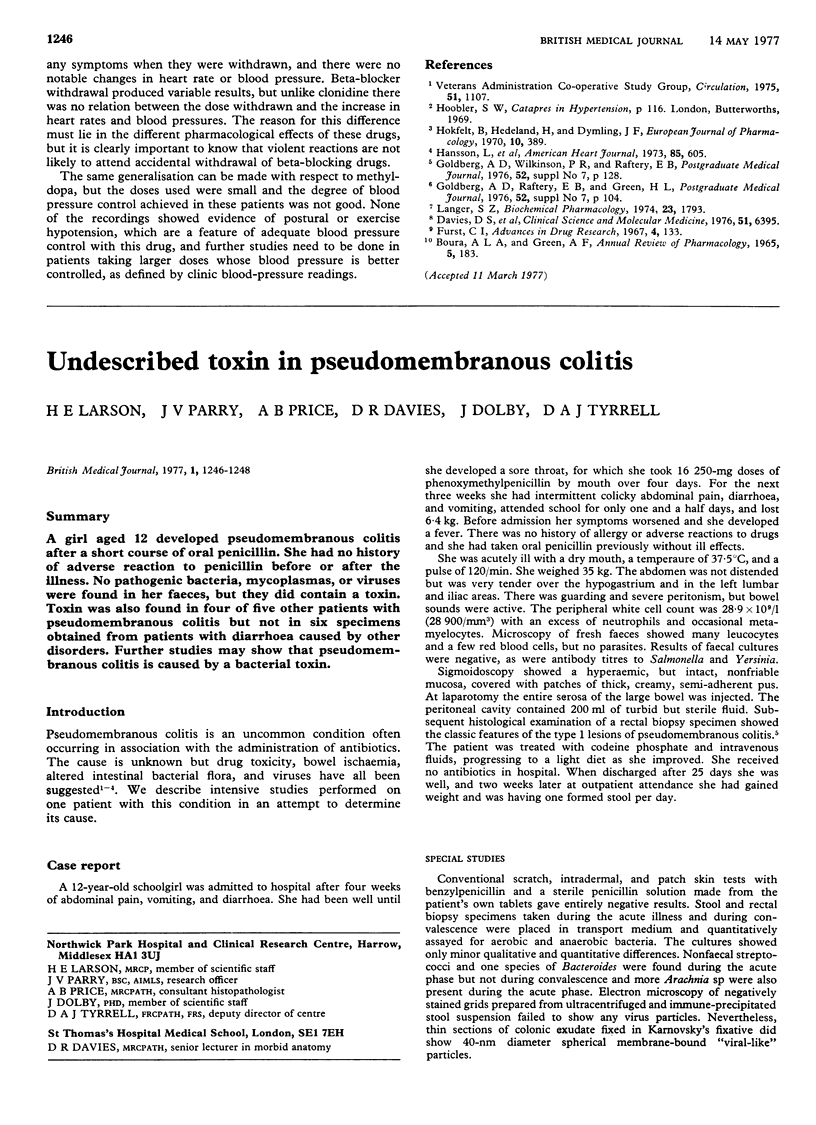Abstract
The immediate effects on heart rate and blood pressure of withdrawing antihypertensive drugs were studied over three-day periods in 26 patients. Four groups of drugs were studied. After withdrawal all patients taking clonidine showed a considerable increase in heart rate and blood pressure with intense ectopic activity. Patients taking postganglionic neurone-blocking drugs showed a similar but less pronounced reaction with increased ventricular ectopic activity. No alarming reactions were seen after withdrawal of methyldopa or beta-blocking drugs. Methyldopa and, especially, beta-blocking drugs are less likely to produce withdrawal reactions than clonidine or the postganglionic neurone-blocking drugs, and patients taking these drugs are therefore less likely to suffer violent reactions if they forget to take their tablets.
Full text
PDF



Selected References
These references are in PubMed. This may not be the complete list of references from this article.
- Goldberg A. D., Raftery E. B., Green H. L. The Oxford continuous blood-pressure recorder--technical and clinical evaluation. Postgrad Med J. 1976;52 (Suppl 7):104–109. [PubMed] [Google Scholar]
- Goldberg A. D., Wilkinson P. R., Raftery E. B. The over-shoot phenomenon on withdrawal of clonidine therapy. Postgrad Med J. 1976;52 (Suppl 7):128–136. [PubMed] [Google Scholar]
- Hansson L., Hunyor S. N., Julius S., Hoobler S. W. Blood pressure crisis following withdrawal of clonidine (Catapres, Catapresan), with special reference to arterial and urinary catecholamine levels, and suggestions for acute management. Am Heart J. 1973 May;85(5):605–610. doi: 10.1016/0002-8703(73)90165-8. [DOI] [PubMed] [Google Scholar]
- Hökfelt B., Hedeland H., Dymling J. F. Studies on catecholamines, renin and aldosterone following Catapresan (2-(2,6-dichlor-phenylamine)-2-imidazoline hydrochloride) in hypertensive patients. Eur J Pharmacol. 1970;10(3):389–397. doi: 10.1016/0014-2999(70)90212-8. [DOI] [PubMed] [Google Scholar]


